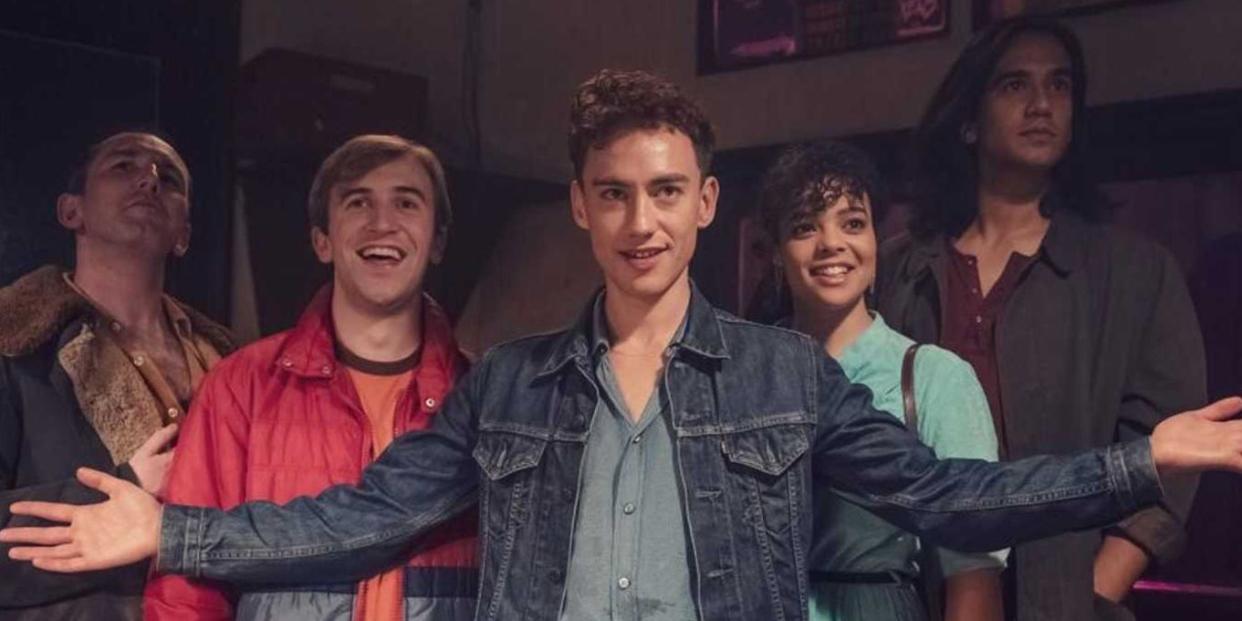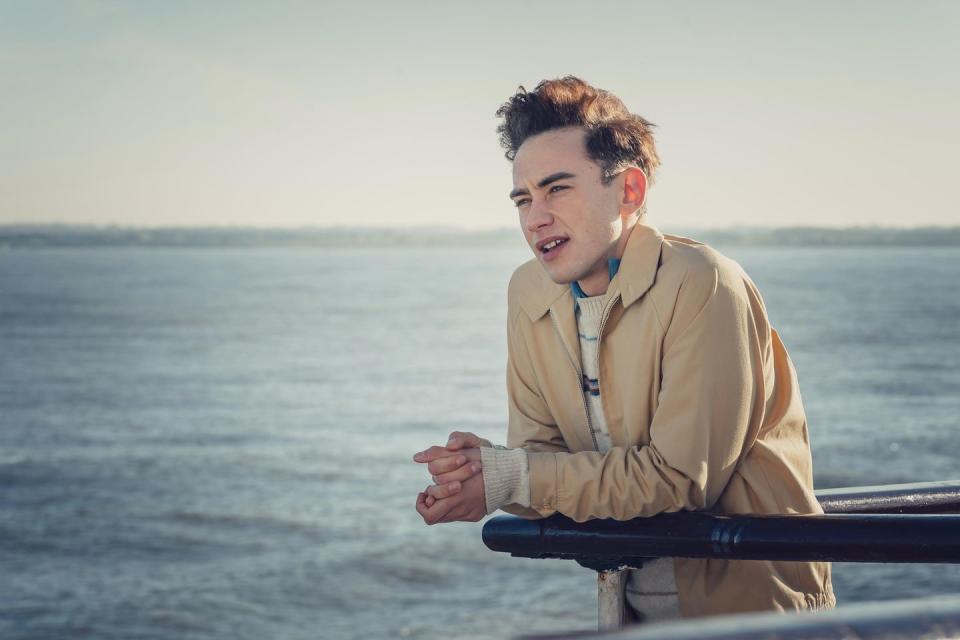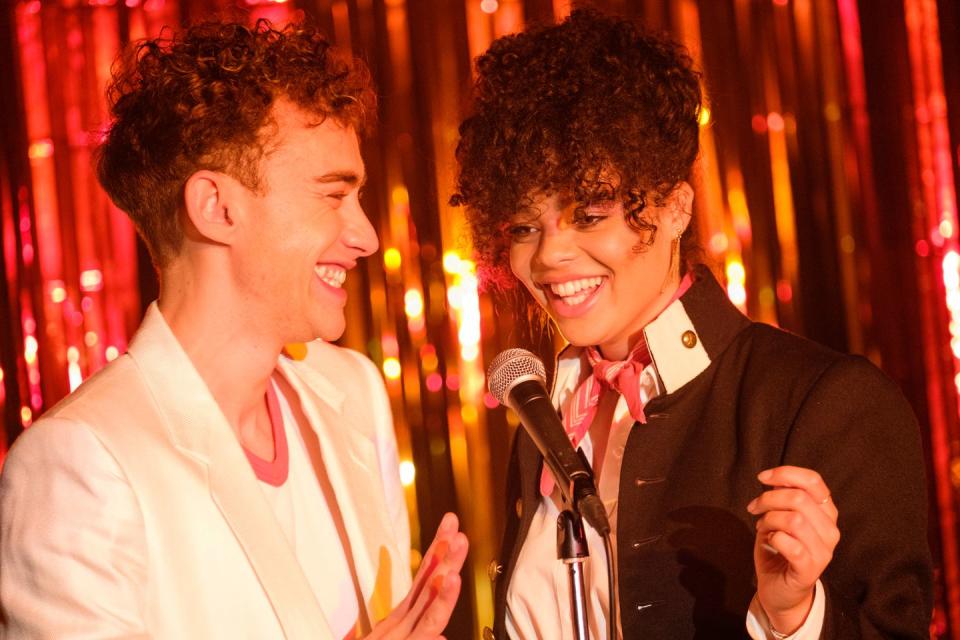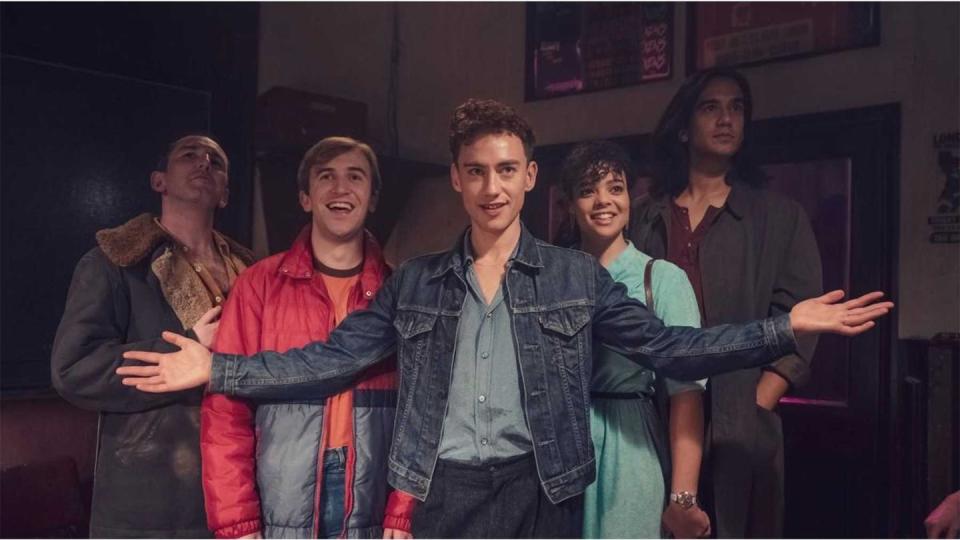It's a Sin: The true stories and real-life inspirations behind Russell T Davies' powerful drama

It's a Sin spoilers follow.
You may see the word "important" bandied around quite a lot when it comes to milestone moments in television, but it's hard to put down on paper just how special and vital It's a Sin truly is.
Set in the '80s, Russell T Davies' incredible new drama reframes the AIDS crisis by capturing it through the lens of those that felt it most. From teenage boys still growing into themselves, to men untrusting of a world that still did not accept them, It's a Sin is a true story for many that lived through that time.
While the absolute tragedy is palpable, the five-part series also brings forward moments of unadulterated joy and inspiration – a testament to the care with which the show has been written, and to the nuance afforded to its characters.

Aspiring Hollywood star Ritchie Tozer (played by Years and Years frontman Olly Alexander) is at the centre, having left behind his small town life in search of his big break in London.
This newfound freedom, mixed with the Big Smoke's sense of opportunity, gives room for him to live more authentically as a young, gay man full of promise and hope for a bright future. He soon moves in with a group of other boys – Ash Mukherjee (Nathaniel Curtis), Roscoe Babatunde (Omari Douglas) and Colin Morris-Jones (Callum Scott Howells) – and, along with close friend Jill (Lydia West), they form their chosen family.
But there was a mysterious and deadly illness starting to strike people down in their prime, and it was said to be largely affecting gay and bisexual men.
By its very nature, It's a Sin captures a moment in very recent history, pulling in real-world themes and events. As well as being a project very close to Russell T Davies, channeling his own lived experiences, the show was also meticulously researched.
As depicted on the show, charities (such as the George House Trust in Manchester, of which Davies is a patron) and volunteers would man phone lines to support those that were suffering from the virus. Archived transcripts of these calls were used to inform their inclusion in the series.
The misinformation surrounding the pandemic was, sadly, all too real as well. For a long time it wasn't known how HIV or AIDS was transmitted, and even medical professionals would perpetuate stigmas, leaving the crisis ripe for conspiracy theories.

Thanks to shows like Pose, the incredible work of grassroots political activism groups – who were fighting for government action, medical funding, effective treatment and fundamentally to improve the lives of those with HIV and AIDS – have been spotlighted on our screens in recent years.
The ACT UP movement was also present in London from the '80s, and It's a Sin captured that spirit – both through the emotionally-charged protest scene, and the wider advocacy within the community.
"In this fight, as the activism began, I think what gets left out of the story is the West End," Davies has also said (via Evening Standard). "So many actors were gay, there were so many people falling ill that actually, the early start of activism was in those chorus lines."

Another poignant scene, in episode four, provided an impassioned commentary on Section 28 – a damaging and discriminatory piece of legislation that was brought in by the Thatcher government in 1988. It banned schools and local authorities from "promoting the teaching of the acceptability of homosexuality" (via BBC News) and has had a profound effect on the LGBTQ+ community.
It was not repealed in England and Wales until 2003 (three years after Scotland), and some areas of the country continued to enforce it by other means until the Equality Act of 2010. Section 28's legacy still continues to be felt.
Russell T Davies acknowledged that "it would have been odd to have written a gay drama set in the '80s with no mention of it", before revealing that "what Ash says in that scene, I have been dying to say for years".
"I think it's important to remind people that can happen," he continued, during the same interview with AnOther Magazine, "because we're sitting here with a Tory government with a majority of 80, who are monsters. I think less than half of our current cabinet voted for gay marriage – certainly our Home Secretary, Priti Patel, who's in charge of the laws of the land, voted against gay marriage. So you can't relax on this stuff and it's not just reminding people as a history lesson. It's reminding us that here, as in America, these rights are hard won and easily lost."

When it comes to individual characters in the show, many were influenced by people that Davies knew or were inspired by experiences from within the community at that time.
"Mainly it was an act of remembering," he has said. "Because I was actually there and I saw those people and knew those people and loved those people. It was time I got around to writing about them."
The character of Jill Baxter, played by Lydia West, is loosely based on a real person called Jill Nalder. She is an actor herself and also takes on a role in the show, playing on-screen Jill's mother.

In a piece written for the Guardian, Russell T Davies spoke beautifully and fondly of his friend Jill. His words make it clear just how much his bond with her formed the heart of the show.
"We've known each other since we were 14, daft camp kids belonging to a wonderful youth theatre in West Glamorgan which was accidentally, brilliantly, the safest gay space imaginable," the screenwriter wrote.
"As we grew up, I went to university, got a job, started to write, but Jill lived a bigger, better life. She went to London. Became an actor. She moved into a flat which she called the Pink Palace, and it felt like an endless party, the rooms filled with gay men and drag queens and show tunes."
"Jill met the crisis head on," Davies recalled. "She stood at the heart of the storm. She went to the hospitals and the funerals and the marches. She held the hands of so many men. She lost them, and remembered them, and somehow kept going."

For the actors on set, Jill's presence brought another dimension to the drama.
"I didn't make any of my character choices based on her, but it was just amazing to have someone in the room who lived through this time," Lydia West told Digital Spy and other press recently. "She is how Jill is depicted, that is the real-life Jill – she's kind, she's generous, she's very sweet, and every time I spent time with her I learned so much, she's so interesting and so inspiring."
"I managed to have some conversations with her about the era and about her friends and about the Pink Palace," she added.
During an interview for Gay Times, Jill Nalder opened up about her allyship and what it meant for that time in particular. She spoke of raising money and her efforts to push for funding for research into the virus but, on a more personal level, she would be at hospital bedsides.
"You're taking a place, in a way, of a family member because you become that family together and just be there in a loving way," she recalled.
It is from Jill's stories that much of It's a Sin has been cultivated. It seems as though a large amount of inspiration came from one in particular – a story, Russell T Davies wrote in his Guardian piece, that "she'd first told me way back in the 90s" but that had "haunted me for decades".
"I hope we've done him justice," Davies said. "That beautiful boy."
It's a Sin airs on Fridays at 9pm on Channel 4, starting on January 22. All five episodes will be available to watch on All4.
Organisations including amFAR, Terrence Higgins Trust and the National Aids Trust (NAT) can provide further information on research, testing and treatment for both HIV and AIDS.
Digital Spy has launched its first-ever digital magazine with exclusive features, interviews, and videos. Check it out with a 1-month free trial, only on Apple News+.
Interested in Digital Spy's weekly newsletter? Sign up to get it sent straight to your inbox – and don't forget to join our Watch This Facebook Group for daily TV recommendations and discussions with other readers.
You Might Also Like


